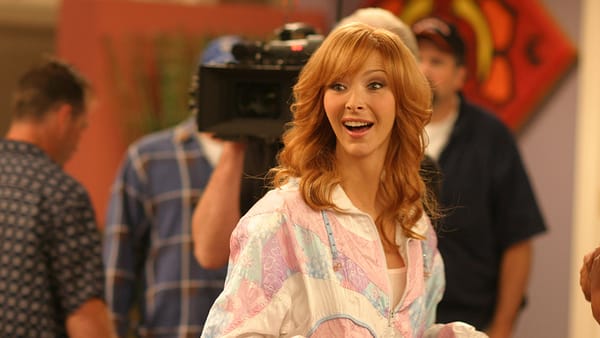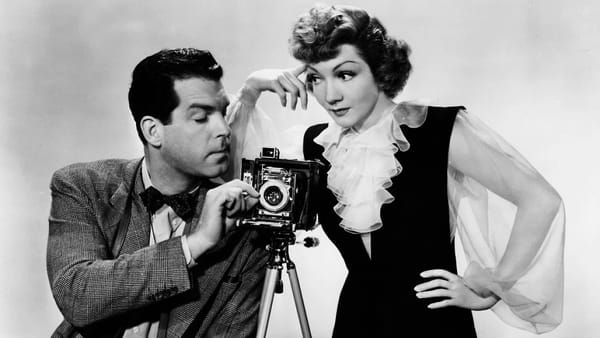Psycho. #56
Normies have feelings, too.
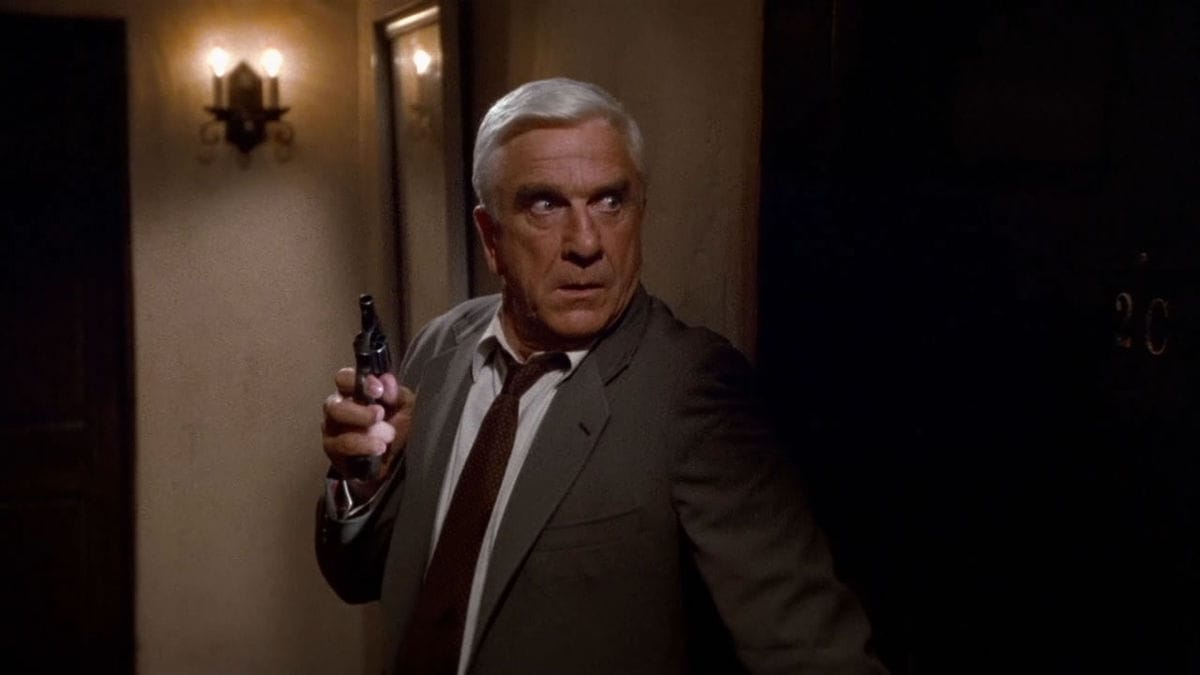

I love some incredibly normie films and absolutely hate some other beloved films from Normiedom. Secretly I have no problem with Normiedom but find other people's hate-posts about the normie films I like a little bit intimidating. If I met someone in person I would probably be fine about shrugging my shoulders and saying "Well I liked it". But online I find the hate-posts about my normie loves to be so well articulated that I wouldn't stand a chance if I even engaged. So I don't post about them. Should I be a bit bolder and declare my love publicly for these beige films? Or should I remain suppressed and living in the shadows?
Yeah, better to stay living in the shadows I think! This seems to be a kind of non-issue to me — no offence to you, I’m sure you’re lovely — but I’m interested in this distinction you make between ‘normie’ or ‘beige’ films on the one hand, and… what, recherché films? Sophisticated films? Esoteric?
I wish you had given examples, because I feel like I am probably the kind of person who tends to write these “hate-posts” that you decry. What are we talking? Everything Everywhere All at Once? Meet Joe Black? Jojo Rabbit? One of the Marvels? Maybe even a standard normie film like, I don’t know, When Harry Met Sally? Is that the kind of thing we’re dealing with here?
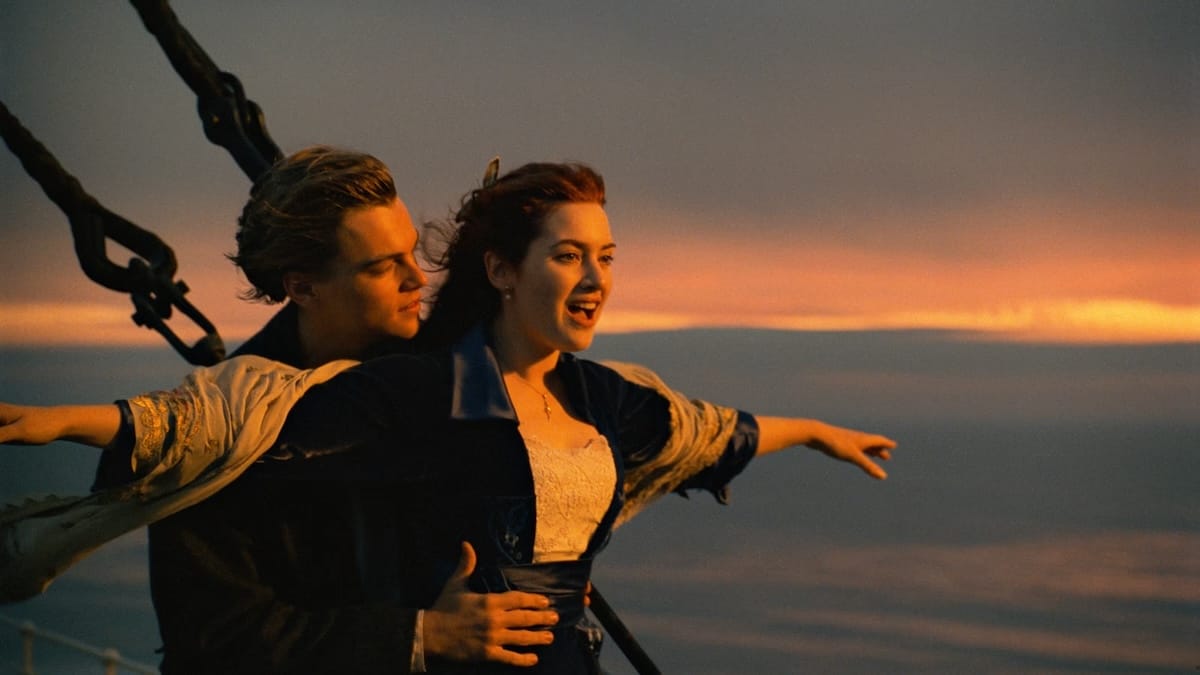
My base feeling is that this stuff doesn’t really need defending so much online, and there’s nothing for you to feel intimidated about. Your guys won! The ‘normie’ films, the ones that offend the fewest people and seem to find a popular consensus, have definitionally done alright for themselves and don’t need you to rush to their defence: a shrug and a “well I liked it” is good enough; the equivalent action is simply to walk away from the argument. Practice with me! Put the phone down. Walk away. Close the laptop. Step away from the scene. Good! You’re doing brilliantly.
Send your questions anonymously to Caspar at this link, no personal information is collected.
I think there could be an interesting case to be made as to why these films (Titanic? The Dark Knight? Jumanji?) speak to you, if you wanted to gather those thoughts and synthesise them into an argument. I do think there can be value in some middling fare that eases your mind; not everything you engage with has to be high art. Having said that, I do believe that we’re fundamentally better off trying new things and stimulating ourselves, rather than falling back on ‘comfort watches’ the whole time; or, that if you do live for those warm-bowl-of-mashed-potato type films, that you not try to put those on a par with, say, The Earrings of Madame de… (Max Ophuls, 1953).
It just doesn’t seem to me that “normie” is that useful a category for movies — does it mean popular, or in some way standard and harmless? Films as diverse and brilliant as Some Like It Hot, The Big Lebowski, Spider-Man: Into the Spiderverse or, I don’t know, let’s go with Titanic again, have many things to recommend them or are flat-out brilliant, and could be considered “mainstream” by most definitions. Part of the issue has to be with what eye you perceive these films, what you are looking for and interpreting; or if, on a rewatch, you are simply re-treading old ground and revelling in the cosy, warm-blanket feeling of nostalgia. Nostalgia is not a critical viewpoint: it is a pleasure, and not to be discarded or sneered at, but it doesn’t contain within itself a perspective that engages with a text.
On Wednesday evening, looking after my kids for a day during what is now their summer holidays, I popped on The Naked Gun (David Zucker, 1988), which I guess has a kind of normie reputation, but my children and I enjoyed it so thoroughly, and it caused me to reflect on certain elements of film language, and the nature of our film-watching as a collective. What is astonishing is how perfectly fresh the film is, still, in 2025, in terms of its idiom and its politics; as a parent, I’m used to picking films from the olden days for the kids to watch and then having to issue an apology for the racism or homophobia or fatphobia or whatever the case may be. The Naked Gun has a touch of body-shaming at the start, maybe, when Drebin wipes off Mikhail Gorbachev’s birthmark, but really I think that’s just a silly joke. That aside, it contains no racism; plenty of joyful gay jokes but no homophobia; no particular sexism save for a bit of generic women-as-eye-candy material. The Gorbachev joke comes in the middle of a hilarious scene satirising racist American interventionism, which predates Team America: World Police by a good fifteen years. And there are a couple of properly blistering jokes about police ineptitude and violence that are extremely ahead of the game, the likes of which I honestly can’t think of in another mainstream film.
One wouldn’t want to be caught — as a serious film critic, which I am — making too lofty claims for a film in which a character pisses and farts very loudly for a full three minutes; but there are some real elements of subversion in the film, in its subject matter as well as its language, which is so extraordinarily zany and irreverent towards everybody, but particularly people in positions of power. That is so powerful. I found much to reflect on while watching the film — especially the joyous language it pioneered, one of complete excess, where a character doesn’t die violently once, but twice, three times… nope, four, it’s still going, five, there we go he’s really, really dead. I think you see that maddening humour of repetition everywhere nowadays, but especially, and most successfully, in the writing style of the Onion and Clickhole, which return to the same joke over and over but expressed in eighteen different ways, all the better to make you more helpless. It’s a cartoony humour, and I think it has really emerged as a significant language in my time, which is not comprehensible to previous generations: my parents prefer for the joke to not dwell on itself, to be modest in its wit.
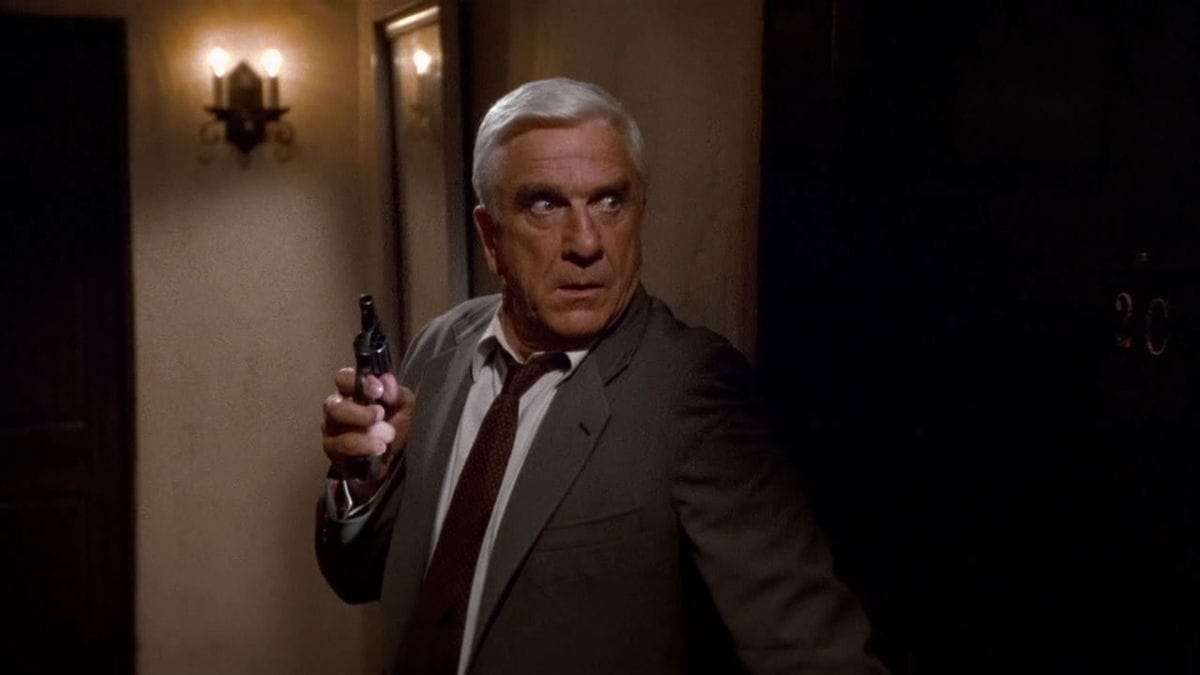
Watching The Naked Gun this week was a joy, and it tells me that watching films is in part contextual: what a pleasure to see it with people discovering these gags for the first time, and revelling in the confidence they have been accorded by the film to get these jokes. There is an unspoken contract between filmmaker and viewer, and if you can get the film’s offering of a joke, that feels like a kindness from the directors and performers. For instance, in being able to understand the idiom of a montage, and then work out that the film is playing with the very form of the montage: the sense of privilege, if you’re eleven years old, in being trusted with that knowledge, greatly amplifies the pleasure you derive from it.
Is this normie? Film-watching comes from the lens that you apply to it, not just the film itself; it exists in your relationship to the film. You could make, let’s say, Bend It Like Beckham into an alternative experience by regarding it in terms of your culture or whatever other framework you chose to apply to it; that probably wouldn’t change the overall reputation of the film, but it might rescue your own sense of your opinions. Look at that — by writing out a full response, I’ve argued myself round to the other side. Don’t be silent! Go out there onto those stupid messageboards and ring the bell, ring it loud, for Happy Gilmore!
Send your questions anonymously to Caspar at this link, no personal information is collected.


